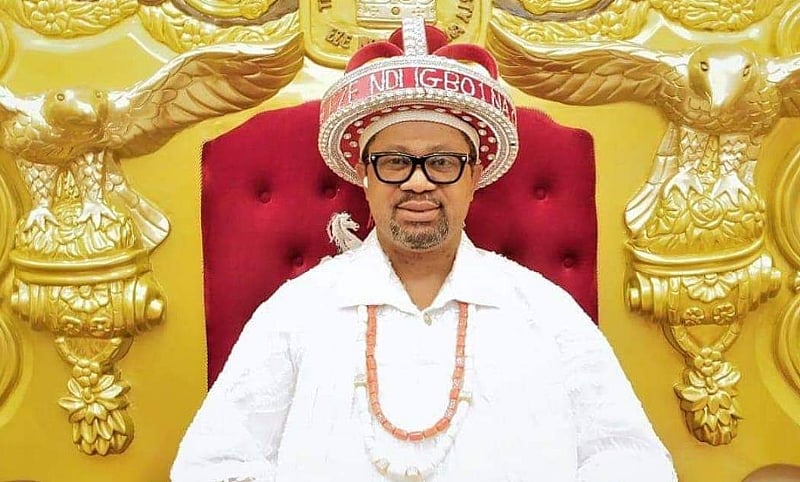His Royal Majesty, Ambassador Chukwudi Ihenetu, the Igbo King in Ghana, has commemorated twelve years of reign, a period marked by a steadfast commitment to preserving and promoting the rich tapestry of Igbo culture and traditions within the Ghanaian context. This kingship, established in the Diaspora by the late Chief Emeka Odumegwu Ojukwu, serves as a vital link to Igbo heritage for those living abroad. A cornerstone of this cultural preservation is the annual New Yam Festival, which has evolved over the years into a vibrant showcase of not only Igbo heritage but also the broader spectrum of African traditions. While significant strides have been made, King Ihenetu acknowledges that the full potential of the Diaspora kingship is yet to be realized, anticipating even greater achievements in the years to come. A key focus of his reign has been educating the Igbo community in Ghana about the crucial balance between upholding their cultural identity and respecting the laws of their host country.
Prior to King Ihenetu’s ascension, the perception of Igbos in Ghana was often marred by the actions of a few individuals who disregarded local laws, leading to negative stereotypes. The King’s twelve-year reign has been dedicated to transforming this narrative. He has tirelessly emphasized the importance of adhering to Ghanaian regulations, understanding that as guests in the country, respect for local laws is paramount. This sustained effort has significantly improved the image of the Igbo community within Ghana. The King’s approach has focused on education, fostering a ripple effect where established community members impart this crucial knowledge to newcomers, ensuring a consistent message of respect and integration. This ongoing process of education and integration remains a central aspect of his leadership.
Central to King Ihenetu’s message is the importance of peaceful coexistence and mutually beneficial relationships with Ghanaians. He underscores that the Igbo presence in Ghana is not about competition or challenging authority, but about contributing to the economic landscape through commerce and trade. He has worked diligently to bridge any cultural divides and address past misunderstandings, particularly in market settings where tensions occasionally arose. The King has consistently emphasized that Igbos are in Ghana to engage in legitimate business activities and contribute positively to the Ghanaian economy, not to usurp local businesses or disregard established practices.
Addressing potential concerns among Ghanaians, King Ihenetu emphasizes the concept of brotherhood and shared prosperity. He explains that healthy competition in business is natural and beneficial, but it should be conducted with cooperation and mutual respect. He clarifies that the Igbo community’s presence in the marketplace is not about domination but about offering diverse products and services, which ultimately contributes to a more vibrant and robust economy for all. He underscores the importance of viewing each other as strategic partners, each contributing unique elements to the overall economic growth of Ghana. This collaborative approach, he argues, benefits both the Igbo community and their Ghanaian counterparts.
King Ihenetu further highlights the core values of Igbo culture, which center around unity, love, and a strong sense of community. These values are vividly exemplified in the annual New Yam Festival, a celebration that reinforces the importance of togetherness and shared heritage. He explains that the Igbo tradition is deeply rooted in generosity and mutual support, often extending credit to fellow Igbos and even Ghanaian business partners, demonstrating a deep sense of trust and collaboration. This trust is underpinned by established community structures, including local government meetings, town unions, and town hall gatherings, which ensure accountability and reinforce the values of responsibility and communal support.
In conclusion, King Ihenetu’s twelve-year reign has been marked by a dedicated effort to foster understanding, respect, and integration between the Igbo community and their Ghanaian hosts. He has championed the importance of respecting local laws while preserving cultural identity, promoting peaceful coexistence and mutually beneficial economic activity. He has tirelessly worked to dispel negative perceptions and build bridges of understanding, emphasizing shared values and the potential for collaboration. His leadership exemplifies the Igbo spirit of unity, love, and community, showcasing the positive contributions the Igbo community makes to the rich cultural tapestry of Ghana. He expresses gratitude for the welcome extended by the Ghanaian people and reiterates that the Igbo cultural presence is not a challenge to Ghanaian traditions, but a way to maintain their heritage while living harmoniously within their adopted home. This approach ensures that future generations of Igbos in Ghana remain connected to their roots while contributing positively to their adopted nation.


